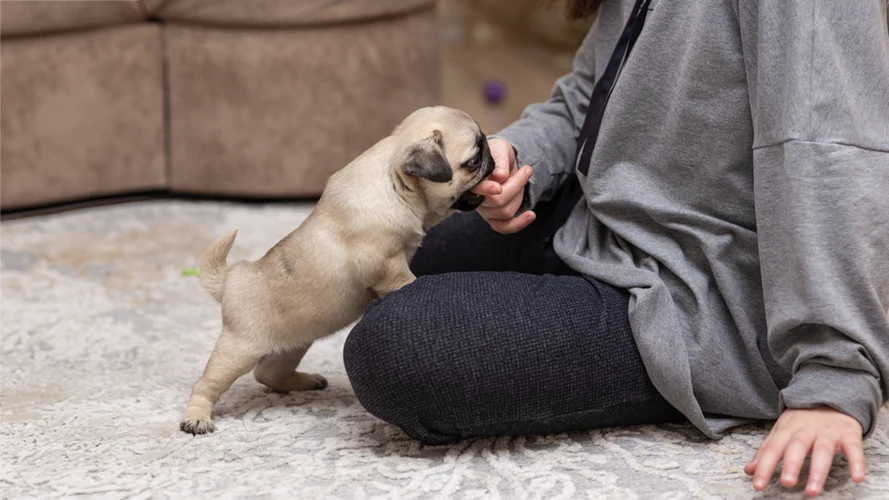How to deal with puppy biting
Puppy biting is a normal part of development, but it’s important to teach them bite inhibition and appropriate behavior early on. Here’s how to handle it effectively:
1. Teach Bite Inhibition (Soft Mouth Control)
- When your puppy bites too hard, let out a high-pitched “Ouch!” and stop playing for a few seconds.
- If they stop or lick you, reward them with praise or a treat.
- If they continue biting, walk away or ignore them for a short time. This teaches them that biting ends the fun.
2. Redirect to Appropriate Chew Toys
- Have a variety of chew toys, ropes, and teething treats available.
- If they start biting hands or clothes, immediately offer a toy instead.
- Rotate toys regularly to keep them interesting.
3. Avoid Rough Play with Hands
- Games like wrestling encourage biting, so use toys instead of your hands for playtime.
- Tug-of-war is fine as long as they play gently and release on command.
4. Use Positive Reinforcement
- Reward good behavior! If your puppy plays gently without biting, give them treats, praise, or petting.
- Ignore or withdraw attention if they bite, so they learn that gentle play gets rewarded.
5. Be Consistent and Patient
- Everyone in the household should respond to biting the same way to avoid confusion.
- Puppies learn through repetition, so stay consistent with training.
6. Teach Basic Commands (Like “Leave It”)
- Teaching “leave it” or “no bite” can help curb unwanted chewing and nipping.
- Use treats to reinforce positive behavior when they respond correctly.
7. Provide Enough Exercise and Mental Stimulation
- Puppies bite more when they’re bored or have excess energy.
- Daily walks, playtime, and puzzle toys help reduce biting tendencies.
8. Avoid Punishment
- Never yell, hit, or hold your puppy’s mouth shut—this can lead to fear or aggression.
- Instead, use gentle redirection and positive reinforcement.
9. Socialize with Other Puppies
- Puppy playdates or socialization classes help teach bite control naturally, as puppies learn from each other.
- If a puppy bites too hard, playmates will yelp and stop playing—this mimics natural learning.
10. Be Patient – It’s a Phase!
- Most puppies naturally outgrow nipping by 4–6 months with proper training.
- If biting becomes aggressive or persists beyond this stage, consider seeking help from a trainer.



Leave a Reply
Want to join the discussion?Feel free to contribute!